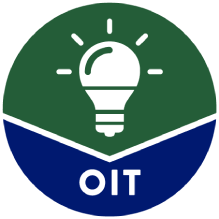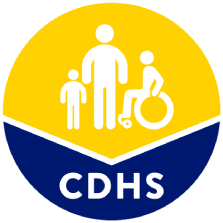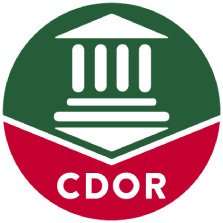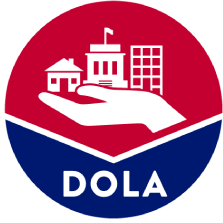The Governor's Operational Agenda

About the initiative
Under the leadership of Governor Jared Polis, the State of Colorado has delivered on a multitude of operational accomplishments, launching universal preschool and saving Colorado families $239M in the first year alone, leading a bold economic recovery agenda from the COVID-19 pandemic which resulted in the nation’s third-fastest rebound in labor force participation, and building for the future by securing $8.6B in federal infrastructure funds from the Infrastructure Investment and Jobs Act and Inflation Reduction Act to build resilient communities and sustain progress for generations to come.
The State has also made significant strides in improving the customer experience for Coloradans. In 2019, the State launched the Colorado Digital Service to bring modern technology best practices into state government, helping to accelerate our ongoing digitization of State services and our work to improve the citizen experience when interacting with the State. The myColorado app, also launched that year, now provides more than one million Coloradans with access to their digital IDs and to a wide range of other State services, ranging from vaccine records to hunting licenses.
The Polis-Primavera Administration has set and achieved many other operational objectives, holding themselves publicly accountable by tracking progress at dashboard.colorado.gov/department-reports.
2025-2027 Operational Agenda
As we look ahead to our last two years in office, we will solidify our operational legacy in the State by continuing to reimagine state government–making it more responsive to Coloradans' needs, building best-in-class digital products, attracting and retaining top talent from all backgrounds, and doing our part to make government greener and more sustainable.
By achieving these goals, we aim to create a government that is not just responsive to today’s challenges but is forward-thinking, adaptable, and ready to meet the needs of tomorrow.
Whether renewing a driver’s license, finding mental health resources, or navigating the myColorado application, Coloradans deserve a digital experience that’s fast, effective, secure, and accessible. Today’s technology makes this possible, but delivering on this promise requires a focused, user-centered approach.
The Governor’s Office of Information Technology and the Colorado Digital Service are committed to building best-in-class digital products and services across state government. This means adopting modern software development practices like product management and user-centered design, launching an analytics program that will provide unprecedented transparency and accountability, and engaging Colorado Digital Service experts to reimagine core digital products and services in eight key agencies to start. A new Digital Governance Steering Committee will drive this vision forward, aligning strategic priorities and providing operational momentum on initiatives that matter most.
High-Impact Digital Service Providers We’ll Prioritize
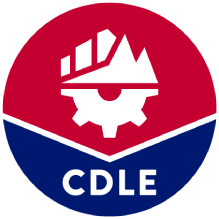
Department of Labor & Employment
Applying for Unemployment Insurance
Claiming Family and Medical Leave (FAMLI)
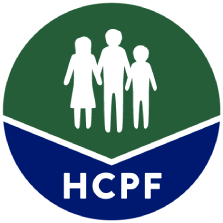
Department of Health Care Policy & Financing
Applying for health coverage
through Health First Colorado

Behavioral Health Administration
Finding Colorado mental health and
substance abuse treatment providers
How We Measure Success
We measure success by the tangible improvements for Coloradans: higher customer satisfaction and improved digital completion rates – ensuring that you can complete the task you logged on for. By simplifying these experiences and centering the voices of Coloradans, we aim to create a State government that is responsive and accessible, meeting the high standards of the modern digital age. See the dashboard below to track our progress in improving services for a faster, more seamless experience for Coloradans.
Coloradans deserve exceptional service, no matter how they interact with State government. We’re committed to ensuring Coloradans can access the help they need through our contact centers, whether calling for emergency rental assistance, applying for FAMLI leave to care for a loved one, or enrolling a child in Universal Preschool. We know some services can’t wait. That’s why we aim to reduce burdensome waiting times and make every interaction efficient and responsive to your needs.
To achieve this, we’re bringing together leaders from eight state agencies that run high-impact, high-volume contact centers to form a community of practice. Through the community of practice, we will bring in industry experts, solve challenges collectively, and share and implement best practices to move the needle on our key success metrics. We will also focus on the full user journey to the best of our ability– ensuring that when someone transitions from using a digital product to a contact center, they get the resolution they need or have the self-service tools to complete the task independently. By better integrating systems, gathering feedback, and analyzing patterns, we can make the process more seamless from start to finish.
Colorado Contact Centers We'll Prioritize

Department of Labor & Employment
Applying for Unemployment Insurance
Claiming Family and Medical Leave (FAMLI)
Claiming Workers' Compensation
 Department of Health Care Policy & Financing
Department of Health Care Policy & Financing
Applying for health coverage
through Health First Colorado
How We Measure Success
Success will be measured by how quickly we answer your calls and how satisfied you are with the experience, as tracked through post-call surveys. By focusing on continuous improvement and centering the voice of Coloradans, we’re building a customer experience that inspires confidence and trust. The dashboard below shows our progress in improving key contact centers.
The State of Colorado is leading the way in addressing climate change, demonstrating how State government can make meaningful progress toward achieving our climate commitments. Governor Polis has issued Greening Government executive orders (Executive Order D 2023 018 and Executive Order D 2022 016) that have challenged us to be bold in our climate efforts. The executive orders also established DPA’s Office of Sustainability, tasked with charting our course toward a greener future. With long-term sustainability ambitions now in place, DPA will partner with agencies to drive this work forward–taking measurable actions to reduce our carbon emissions, conserve water consumption, be efficient with our physical footprint, and inspire others to follow suit.
How We Measure Success
In collaboration with the Department of Personnel & Administration’s Office of Sustainability, we will join the U.S. Department of Energy’s Better Climate Challenge to hold ourselves publicly accountable for cutting Scope 1 and Scope 2 greenhouse gas emissions by 50% by 2034. To further reduce our greenhouse gas emissions from State Fleet vehicles, we’re also accelerating the transition to electric vehicles (EVs) and building the infrastructure needed to support them. We will target acquiring 1,250 EVs in the State Fleet by 2027, accounting for approximately 50% of all eligible fleet vehicles. We will also target a 20% reduction in potable water consumption by 2034 by making water-wise investments in State facilities and using xeriscaping and water-efficient irrigation on all new landscaping projects implemented after 2025.
Our commitment to accountability is reflected in the following transparent, publicly tracked metrics:
Finding talented people in an increasingly competitive job market is challenging, but we know the talent is out there - shaped by skills, experiences, and diverse backgrounds, not just educational credentials. In Colorado, 1.3 million individuals are skilled through alternative routes (STARs), offering immense potential to strengthen the state workforce and reflect the people we serve. By embracing skills-based hiring and expanding work-based learning opportunities, we can unlock the full potential of our workforce and create pathways to meaningful careers within State government.
The Department of Personnel and Administration (DPA) and the Colorado Department of Labor and Employment (CDLE) will continue to pursue the Administration’s top workforce priorities, as well as the work already underway through recent executive orders (including Executive Order D 2023 016 Apprenticeships and Work-Based Learning for the State Workforce and Executive Order D 2022 015 Concerning Skills Based Hiring for the State Workforce).
To achieve this vision, we are accelerating efforts to implement two work-based learning programs in each department. Additionally, we are transforming how we hire by implementing skills-based hiring qualifications in job postings statewide, ensuring that opportunities are accessible to individuals with a wide range of backgrounds. This approach will not only expand the workforce pipeline but also strengthen our ability to deliver critical services to Coloradans.
How We Measure Success
We will measure success by implementing at least two work-based learning programs in each department by December 30, 2025, and increasing the number of STAR applicants to skills-based eligible positions by 5% (from 65,734 applicants to 69,021 applicants) by June 30, 2026. By adopting skills-based hiring practices and shifting our approach to talent management, we are building a workforce ready to meet the challenges of today and tomorrow.
Our goal is to use state resources as efficiently as possible, and part of this effort will require that we continue to reduce our physical footprint and optimize space utilization across agencies. In this spirit, by 2027 we aim to cut 1 million square feet of leased and owned space. DPA will continue to work with state agencies to identify opportunities for footprint reduction. We will pursue several key strategies, including optimizing existing space usage, encouraging co-location where possible, pursuing lease buyouts, and selling underutilized properties.
How We Measure Success
This effort is about more than just saving space–it’s about responsibly managing public resources and maximizing efficiency to better serve Coloradans. By reducing overhead and focusing on using our resources judiciously, we’re creating a leaner and more sustainable government that judiciously stewards public resources for Colorado.
By June 30, 2027, we will maximize efficient use of the State’s physical footprint by decreasing State leased and owned space by a total of at least 1 million square footage reduction since Governor Polis took office in January 2019.

